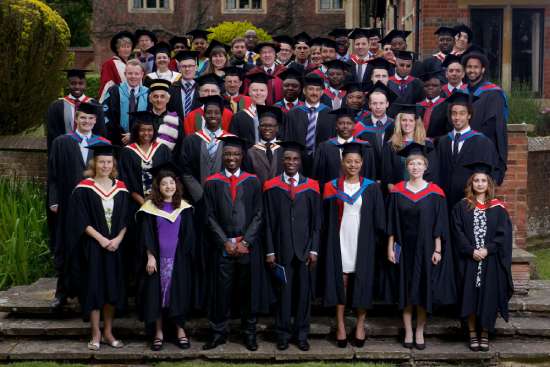Seventh-day Adventists have historically upheld the importance of a well-rounded, high-quality education. Instead of a one-size-fits-all approach to teaching and learning, the Adventist Education system operates on the principle of educating the whole person.
In addition to “book knowledge,” it’s all about helping kids discover their own unique God-given gifts. We believe in affirming their individual value early on, then teaching them how to put their skills and strengths to good use in their communities.
The goal is for kids to learn how to work together as unique parts of the body of Christ (1 Corinthians 12:12)—whether they aspire to work in an office, in a hospital, on a farm, in a lab, or wherever they choose.
Here you’ll find an overview of our worldwide educational system, how it became what it is today, and what sets it apart. We’ll look at:
- How the Adventist Education system began
- The philosophy of Adventist education
- Our current global network of schools and colleges
- Enrollment at Adventist schools
- The difference from public schools
- The difference from other Christian schools
- The rewarding benefits
And in the end, just like everything should be, it’s all about Jesus, our Savior. Every Adventist school operates within our church’s mission to live, model, and share the love of Christ.
How did the Adventist education system begin?

Photo by Austrian National Library on Unsplash
In 1868, Goodloe Harper Bell started a private school for Adventist children. This was a locally supported school in Battle Creek, Michigan.
And among his first students were the sons of James White and Ellen White, some of the most influential founders of the young Seventh-day Adventist denomination.
At the same time, the Adventist church was beginning to grasp its worldwide mission. And to accomplish this mission, it needed to be able to properly train missionaries.
And that’s where Adventist education had its beginnings.
In 1872, James and Ellen White encouraged Bell to help establish his 12-student school as the first Adventist-owned school. It was upgraded into a missionary training institution and eventually called Battle Creek College.
Ellen wrote a comprehensive essay about the school titled “Proper Education,” which was published in the Health Reformer, a magazine published by the Adventist church. In it she described how this college, and others that would be established in future, should be run. The principles she described in that essay became the backbone of the philosophy of Adventist education.
And based on that philosophy, many other schools were established. Starting in the United States—and into the vast mission fields of the world—Adventist schools were built and adapted for the various needs and cultures of the communities they were designed to serve.
But one thing remained constant for all of them—their mission.
The mission of all these colleges was to provide practical training and education to students in the context of the Adventist message, seeking to share the hope of Jesus to every corner of the world. The trainees would then venture out as denominational or self-supporting missionaries.
And this mission was clearly evident, even in their earlier names. For example:
- Battle Creek College was renamed Emmanuel Missionary College. It has since grown into today’s Andrews University and Theological Seminary in Michigan, USA.
- College of Medical Evangelists, today’s Loma Linda University in California, USA.
- Southern Missionary College, today’s Southern Adventist University in Tennessee, USA.
- Australasian Missionary College, today’s Avondale College in Australia.
- Oakwood Industrial School, today’s Oakwood University in Alabama, USA.
- Solusi Mission, today’s Solusi University in Africa.
The purpose of Adventist education has always been to train young people for service. Service in the mission field, both at home and abroad.
And as these schools grew in numbers and patronage, they established institutions at all levels of learning.
If you do a quick search now, you’ll discover many Adventist institutions ranging from kindergarten, grade school, colleges, universities, and several graduate programs.
The philosophy of Adventist education
Ellen White’s essay, “Proper Education,” covered the Adventist education philosophy.
Here’s an outline of what it entailed:
- Education in the context of the plan of redemption
- Redemptive discipline
- Emphasis on practical and vocational training
- Development of students’ individuality and God-given faculties
Let’s take a look at each of these.
1. Education in the context of the plan of redemption

Photo by Alexis Brown on Unsplash
In this context, the whole person is developed—the physical, intellectual, social, emotional, and spiritual aspects of a student—as a means to restore the image of God in humanity. This means that beyond the bookwork, the whole process will seek to infuse biblical principles in all areas of student life.
And here’s what that looks like:
- Practical healthy living
- Strong intellectual development
- Healthy social interactions
- Mental and emotional well-being
But topping its priorities is an intentional dedication to spiritual and character development.
And this is where teachers play a key role.
Teachers are wonderful role models, instructors, and mentors in the following ways:
First, through their example and influence
Teachers are commissioned to demonstrate God’s love and service through all their interactions with their students—upholding patience, love, and biblical guidance.
As Lucien, a former student of Oakwood University put it:
“Whether it’s basketball, or health principles, or Revelation, they focus on academics as well as spirituality. This has made me comfortable to share with my professors, from homework to what I’m going through.”
Second, through classroom instruction based on the Bible
Teachers make the Bible the basis of all instruction. Its principles are infused into the whole curriculum.
Third, through the religious activities that are part of the daily schedule and school calendar

Photo by Sincerely Media on Unsplash
Prayer, Scripture readings, and worship are part of the daily school routine.
Also, different Adventist institutions always host different spiritually enriching events, sprinkled throughout the school year, such as:
- “Week of Worship,” a weeklong assembly series with guest speakers and activities
- Spiritual retreats
- Concerts or sports tournaments that include social and spiritual activities
Fourth, through community outreach and mission activities that inspire a spirit of loving service to God and man
Adventist school curriculums always typically community service as part of their graduation requirements.
There are many ways students can serve in this capacity to receive this credit, such as volunteering with community organizations or participating in organized service opportunities with the school.
At some schools, students and teachers collaborate to host community events, such as:
- Thanksgiving luncheons
- Christmas concerts
- Health expos
- Free clinics
- And even summer camps
A good example of a service activity is from Waldwick Adventist Academy in New Jersey, which hosts a yearly “Pi Marathon.” In this event, participants run or walk a 3.14 mile distance. They get to involve community members and leaders. Even the local mayor joins them for the events of the day.

Photo by Dr Josiah Sarpong on Unsplash
Some schools even organize mission trips overseas.
In fact, Adventist colleges and universities allow students to take gap years to go as student missionaries overseas.
Schools often work with organizations like Adventist Frontier Missions or Adventist Volunteer Services, which coordinate and facilitate student missions.
Because of all these opportunities, Adventist schools tend to become centers of influence within their communities and abroad.
2. Redemptive discipline
The goal for campus discipline should always be about teaching students constructive ways to handle mistakes, difficulties, or disagreements.
The idea is to lift up God’s law of love as a means toward love and harmony in a community, exemplifying the fruits of the Holy Spirit: love, joy, peace, patience, kindness, goodness, faithfulness, gentleness, and self-control (Galatians 5:22-23).
In her book Education, Ellen White sums it up by saying,
“Let the child and the youth be taught that every mistake, every fault, every difficulty, conquered, becomes a stepping stone to better and higher things.”(White, Education, p. 277:4).1
3. Emphasis on practical and vocational training
Since the core purpose of Adventist education is to equip its students for service, this often includes training in various trade skills. This helps students develop a strong, healthy work ethic, and it gives them opportunities to apply things they’ve been learning about in the classroom.
And if you are creative in today’s digital age, you can learn to use the latest technology, various tools, and software.
You also have the opportunity to develop leadership and business skills in your specific line.
A good example of such a program is found at Fletcher Academy, a self-supporting school in North Carolina, USA.
They run a retail health foods store, an independent retirement center, a fitness center, and a commercial laundry where the students can work, learn practical skills, and earn some money or tuition credit.
4. Development of students’ individuality and God-given talents

Photo by Manuel Nägeli on Unsplash
Adventist educators strongly believe that students at all levels of schooling possess individuality that should be celebrated and developed. Students are encouraged to think critically, make wise decisions, and put their faith into action.
Additionally, each student has God-given talents, and it’s important for them to know that whatever their skills or passions, they can play an important part in their community.
The Adventist curriculum is built to provide ample opportunities for cultivating these talents through academics, practical training, and various outreach opportunities.
Adventist education today
 As of December 2018, there were 6102 elementary schools, 2548 secondary schools, 119 universities and colleges, and 38 vocational training schools. This makes a total of 8807 Adventist educational institutions spread out across the globe.
As of December 2018, there were 6102 elementary schools, 2548 secondary schools, 119 universities and colleges, and 38 vocational training schools. This makes a total of 8807 Adventist educational institutions spread out across the globe.
Today, the Adventist education system is the second-largest Christian system of schools in the world, only second to the Catholic schools network.
So every student who enrolls at an Adventist school will be joining a massive family of learners and educators around the world.
And a recent study conducted in the US among grade schools showed that students in Adventist schools outperformed the national average in all subjects, all grades, and in schools of all sizes.
This success was mainly attributed to the wholesome approach of Adventist education in the development of the students, including the spiritual aspect.
In fact, American Adventist academies have a 97.5% graduation rate, and 88.6% of those graduates go to various institutions of higher education.
Many of them proceed to Adventist colleges, which offer both undergraduate and graduate programs in different fields.
For example, if you’d like to train as a pastor, Andrews University is distinguished for its theological seminary. Or if you want to be a doctor, nurse, or dentist, Loma Linda University is a good option because it specializes in health sciences.
But most Adventist colleges offer a wide range of disciplines, allowing students to pursue many different fields of study.
And yet with all this success, Adventist educators believe there is no limit for further improvement.
They still seek out new ways to give students the best learning experience and to remain relevant in today’s fast-changing world.
Some of the ways that they do this include:
- Collaboration among multiple institutions
- Cooperative learning through practical training programs
- An integrated curriculum that allows students to engage in relevant, meaningful activities
- Leveraging digital learning platforms
- Additional continuing education requirements
As their slogan goes, Adventist education is all about the “journey to excellence.”
Who can attend Adventist schools?
Anyone who desires a well-rounded, Bible-based, and Christ-centered education is welcome to enroll. You do not have to be a member of an Adventist Church to attend an Adventist school.
The objective is to nurture and encourage every child, and point them to the Savior—no matter their religious background, race, social status, or nationality.
And students can join the Adventist school system at any point in their educational journey. Adventist schools handle transfers from other school systems such as:
- Public schools
- Private schools
- Other Christian schools
- Homeschool programs
How are Adventist schools different from public schools?
For one, the education system focuses on more than just preparation for professional success. Its greatest focus is on the spiritual growth of the students.
Biblical principles permeate every aspect of school life. And love for unselfish service to God, the church, and humanity is fostered in the learners.
As Ciera Lewis, a previous student who studied in public schools prior to joining an Adventist university, puts it:
“The greatest benefit for me in attending an Adventist school is seeing how God applies not just in my personal life, but also in our education.”
How are Adventist schools different from other Christian schools?
Adventist schools may likely be similar to many other Christian private schools. The differences lie in two primary areas:
Our endeavors to promote a healthy lifestyle in mind, body, and spirit. This could include things like:
- Vegetarian cafeteria focused on healthy meals for kids
- Dress code or uniforms to promote modesty and equality
- Extracurricular programs or special events that support both physical and mental health
A few of our doctrines differ from many other Christian Protestant denominations. Based on our deep study of Scripture, these distinct beliefs include:
- The sanctuary message
- The spirit of prophecy
- The state of the dead
- The Sabbath
- The Second Coming
- An emphasis on the three angels messages of Revelation 14:6-12
The curriculum, programs, standards, daily routines, schedules, and calendar in general are founded on these beliefs about our loving Creator and the redemption offered through Jesus Christ.
The eternal rewards of Adventist education
 Godly teachers who realize that they’re co-laborers with God in the redemptive work of educating students. Teachers who value students and transfer goodness to them.
Godly teachers who realize that they’re co-laborers with God in the redemptive work of educating students. Teachers who value students and transfer goodness to them.
Due to a low student-teacher ratio, students enjoy individualized attention and instruction.
This creates a safe and fun learning environment to receive spiritual guidance and motivation for their journey. An environment that makes even younger academy children love school.
So if you are a parent, you can enjoy peace of mind as you send your children to school and head off to work. You’ll be at peace because you’ll know your children are in safe hands at school.
And as a student basking in all these advantages, you’ll be free to:
- Discover who God is and develop a relationship with Him
- Learn to put God first in everything
- Learn how to apply God’s promises to every situation, and every hard time
- Discover your life purpose and prepare for a successful career in your chosen path
In a nutshell, Adventist education facilitates harmonious maturity—maturity in your physical, intellectual, social, emotional, and spiritual life.
The years you invest in Adventist education will have a bountiful return on your investment. You’ll be rewarded with a great foundation for your life to help you maneuver today’s turbulent world. And that foundation will set you up to impact your world for eternity!
If you’re interested, you can find Adventist academies near you, or see which Adventist college or university offers the program of your choice and apply online.
Related Articles
More Answers
Do Seventh-Day Adventists Have “Rules” For Clothing?
Many religions have guidelines on dress, but what about the Adventist Church? Discover how Adventists choose to dress based on biblical principles.
11 Reasons People Become Seventh-day Adventists
Curious why many people become Adventists? Here are elements of Adventist beliefs, values, and mission often reflected in people’s decisions to join.
What’s the Seventh-day Adventist General Conference Session?
At the General Conference Session, Adventist delegates from around the world gather to assess the state of the organization, pray, and discuss current issues. Here’s how it works.
How Adventists View the End of the World
The end of the world is no fun to think about. But here’s how we can actually find hope and comfort in what’s to come.
What Is an Adventist Medical Missionary?
A medical missionary in the Adventist Church is someone who cares for the medical needs of people as a way of showing the love of Jesus. They may travel to another country, or even just serve in their hometown.
Is the Seventh-day Adventist Church Protestant?
Learn how the beliefs of the Seventh-day Adventist Church align with the “5 solas” of Protestantism.
Are Seventh-day Adventists Evangelicals?
According to its origins and definition, evangelicalism is about following Jesus and the Bible and sharing the Gospel through the way we live our lives. Adventists wholeheartedly harmonize with these principles.
Could Anything Keep Me from Becoming an Adventist?
We are each saved through Christ. But when it comes to church membership, are there certain beliefs or expectations to become an Adventist?
Do Seventh-day Adventists Have “Rules”?
We uphold principles we believe will help us maintain a closer relationship with Jesus and His Word. Learn how these principles guide Adventist lifestyles.
Do Seventh-day Adventists Have “Rules” For Marriage?
Around the world, many cultures and religions have various marriage traditions, expectations, or even rules when it comes to choosing a partner, planning the wedding, extended family logistics, or a number of other things.
Can a Seventh-day Adventist Marry a Non-Adventist?
Yes. Seventh-day Adventists are not under any official rules that dictate who they can or cannot marry. This is a personal, life-altering decision between the couple and God.
What Adventists Believe About Alcohol and Tobacco Use
The Seventh-day Adventist Church has historically discouraged the use of alcohol and tobacco. Even before the church started in 1863, its leaders were realizing the negative effects of these substances.
Jewelry—Why Do Many Seventh-day Adventists Choose Not to Wear It?
If you walk into a Seventh-day Adventist church service, you might notice that many people aren’t wearing earrings, bracelets, necklaces, or sometimes even wedding rings.
International Pathfinder Camporee
Youth aged 10-15 in the Adventist Church’s global Pathfinder program look forward to the International Camporee every 5 years. This event brings together Pathfinders from around the world for exciting activities.
How Adventists interpret Bible prophecy
Bible prophecy conjures up a variety of emotions in people. For some, it feels exciting or mysterious.
Moviegoers’ Guide to The Hopeful: The Facts Behind the Film
Learn where and when you can watch The Hopeful and how to get tickets. Already seen it? We’ll uncover the real story that inspired this film.
How Are Seventh-day Adventists Different from Other Protestants?
As a Protestant Christian denomination, the Seventh-day Adventist Church regards the Bible as the ultimate guide and looks to Jesus Christ as the only way to salvation. We do have some differences of belief or interpretation when it comes to topics like Bible prophecy, end-time events, the Sabbath, and a person’s state after death.
How Adventists Handle Death and Funerals
Most Seventh-day Adventist funeral services are similar to those of other Protestant denominations, such as Methodists, Baptists, or Presbyterians, but you might find a few differences or unique nuances.
Adventist Culture
Many Seventh-day Adventists adhere to specific lifestyle principles that can make them stand out from those in other Christian denominations. Whether it’s going to church services on Saturday or eating the popular Adventist entrée of “haystacks.”
Do Adventists Observe Easter-Related Holidays?
Jesus Christ’s resurrection, celebrated on many Easter-related holidays, is central to the beliefs of the Seventh-day Adventist Church. And that means we seek every opportunity to remember it.
An Overview of Seventh-day Adventist Higher Education
The Seventh-day Adventist Church has about 118 tertiary schools around the world. Though many of them are within North America, you’ll also find Adventist universities in countries across the world—places like Croatia, Austria, Brazil, Madagascar, and the Philippines.
The Ten Commandments from a Seventh-day Adventist Perspective
Ever eaten a salad and gotten a big piece of green stuck in your teeth? And you didn’t realize it was there until you looked in the mirror? (Because no one ever told you!)
The Benefits of A Seventh-day Adventist Academy
Adventist academies are high schools (grades 9-12) that are owned and operated by the Seventh-day Adventist Church.
Are Seventh-day Adventists Christians?
Yes, the Seventh-day Adventist Church is a Protestant Christian denomination formed in 1863. Just like other Christians, we believe that Jesus Christ is our Savior and seek to follow the principles of the Word of God.
Adventist Movies: Where Faith and Film Meet
The Adventist Church uses film to share our faith and uplift positive values. Learn more about specific Adventist-produced films and where to find them.
Do Adventists Celebrate Christmas?
In general, most Seventh-day Adventists do celebrate Christmas.
Since our denomination doesn’t have specific guidelines about holidays, it’s up to each member to decide whether to celebrate it based on their personal convictions and study of the Bible.
What Does the Bible Say About Modesty
Seventh-day Adventists and Christians in general try to ensure their outward presentation and lifestyle glorify God. This often involves daily habits like the ways we hold conversations, the ways we dress and accessorize, and the ways we regard other people when we’re out and about.
How Do Adventists Make Movie and Music Choices?
How do Adventists decide what music to listen to and which movies to watch? Learn how Bible principles can help us make better entertainment choices.
Does the Seventh-day Adventist Church Believe in Paying Tithe?
Seventh-day Adventists believe in paying tithe and offerings based on the biblical command and our commitment to being wise stewards of God’s resources. These donations help fund the mission of the Adventist Church by supporting pastors, missionaries, church expenses, and evangelistic projects, among other things.
Didn’t find your answer? Ask us!
We understand your concern of having questions but not knowing who to ask—we’ve felt it ourselves. When you’re ready to learn more about Adventists, send us a question! We know a thing or two about Adventists.
































